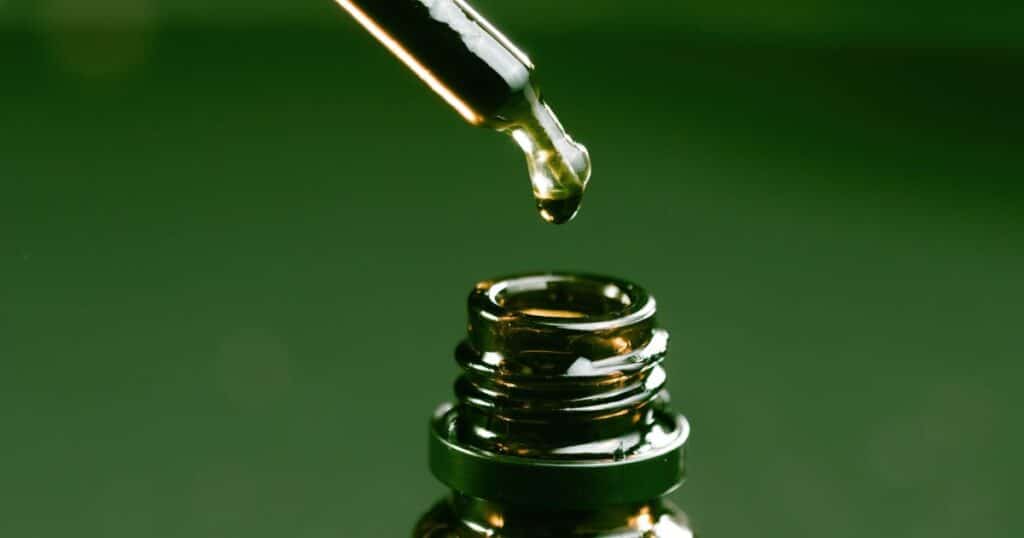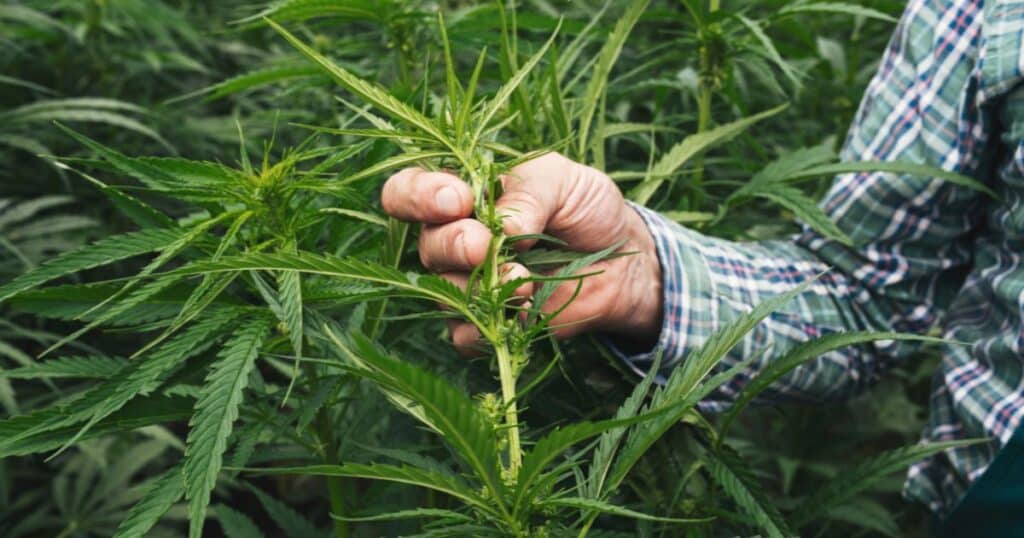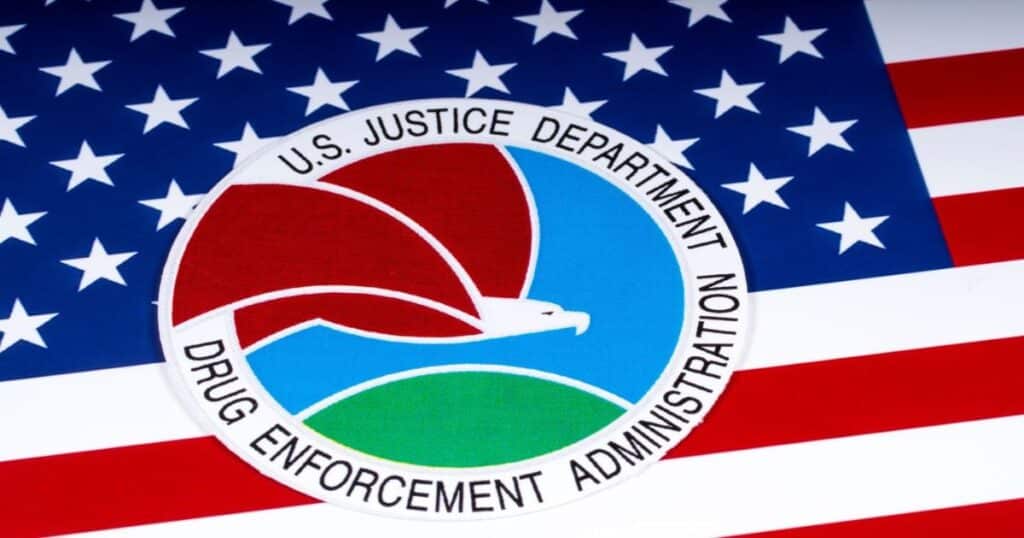Delta-8 THC is an analog of Delta-9 THC, the psychoactive ingredient in marijuana. It has similar effects to Delta-9 but is much less potent and most likely does not have the same level of intoxication associated with it. It is derived from hemp or cannabis plants, and its legality varies by state.
The 2018 Farm Bill removed hemp from the Controlled Substances Act (CSA), effectively making hemp-derived products legal on a federal level. This created confusion in the marketplace, as it was unclear how this applied to Delta-8 THC derived from CBD and other cannabinoids.

In 2021, DEA Drug & Chemical Evaluation Section Chief Terrence Boos issued an email recently brought to light by Shane Pennington via his “On Drugs” Substack. This email clarifies the agency’s position on Delta-8 THC synthesized from CBD and has important implications for those marketing and selling delta-8 products.
DEA Email Clarifies Its Position on Delta-8 Synthesized from CBD
You can view the entire email here via Shane Pennington’s Substack here.
“Arriving at delta-8 THC by a chemical reaction from CBD makes the delta-8-THC synthetic and therefore, not exempted by the AIA. Any quantity of delta-8-THC obtained by chemical means is a controlled substance.”
In other words, the DEA considers Delta-8 THC, which is not extracted directly from hemp, as a synthetic form of THC and therefore subject to federal control as a Schedule I drug. This includes Delta-8 products synthesized from CBD isolates and other cannabinoids derived from hemp.
According to the DEA, unless the product is extracted directly from hemp, it is subject to the same restrictions as any other Schedule I drug and can be legally sold only in states with legalized marijuana. This could have a significant impact on the market for Delta-8 products.
Chief of the Drug & Chemical Evaluation Section of the US Drug Enforcement Administration (DEA)
Terrence Boos is the Chief of the Drug & Chemical Evaluation Section of the US Drug Enforcement Administration (DEA). He has been with DEA for nearly 25 years and has extensive experience in drug and chemical control, regulation, policy-making, and enforcement.
Boos has earned a reputation as an authority on issues related to controlled substances, and he is the person responsible for making “official determinations” regarding the scheduling status of substances on behalf of the DEA. This means he speaks with authority on precisely this question, which is why his opinion carries such weight.
As a result, any federal court facing the issue would likely defer to Boos’s (and, by extension, DEA’s) views on Delta-8 THC synthesized from CBD. Unless a court or Congress says otherwise or Boos changes his mind in an official determination, the DEA’s opinion could be considered authoritative in a court of law and likely to get some level of deference.
How Does this Affect the Market for Delta-8 Products?
The DEA’s position on Delta-8 THC synthesized from CBD has important implications for those marketing and selling delta-8 products. In the eyes of the DEA, this means that unless the product is extracted directly from hemp, it may be subject to federal control as a Schedule I drug.
This could limit the availability of these products in states that do not have legalized marijuana. It could also mean that companies must ensure that their Delta-8 THC products are extracted directly from hemp and not synthetically produced in order to remain compliant with federal law.

Additionally, this could affect businesses’ ability to advertise and distribute Delta-8 THC products across state lines, as many states have laws governing the sale and promotion of Delta-8 THC products.
The DEA’s view on Delta-8 THC synthesized from CBD also means that these products are subject to Internal Revenue Code Section 280E. This section of the IRS tax code was created in 1982 and states that businesses cannot deduct operating expenses related to any trade or business which is “trafficking in controlled substances,” meaning they must pay taxes on all revenue earned from the sale of these products.
DEA considers Delta-8 THC synthesized from CBD a controlled substance, meaning that businesses selling these products must pay taxes on their sales. This could significantly impact businesses in the delta-8 market, dramatically reducing profits and increasing costs for companies selling these products.
Several options are available for businesses that want to stay within the bounds of the law. Companies can choose to use only Delta-8 THC extracted directly from hemp, ensuring that their products comply with federal law. Additionally, businesses can choose to only sell Delta-8 THC in states where marijuana is legal or seek other options such as CBD isolate extracts.
Keep updated on all the latest news and updates in the Cannabis industry here at Beard Bros Pharms by signing up for our Friday Sesh Newsletter here. Always Dank and Never Spam!

















